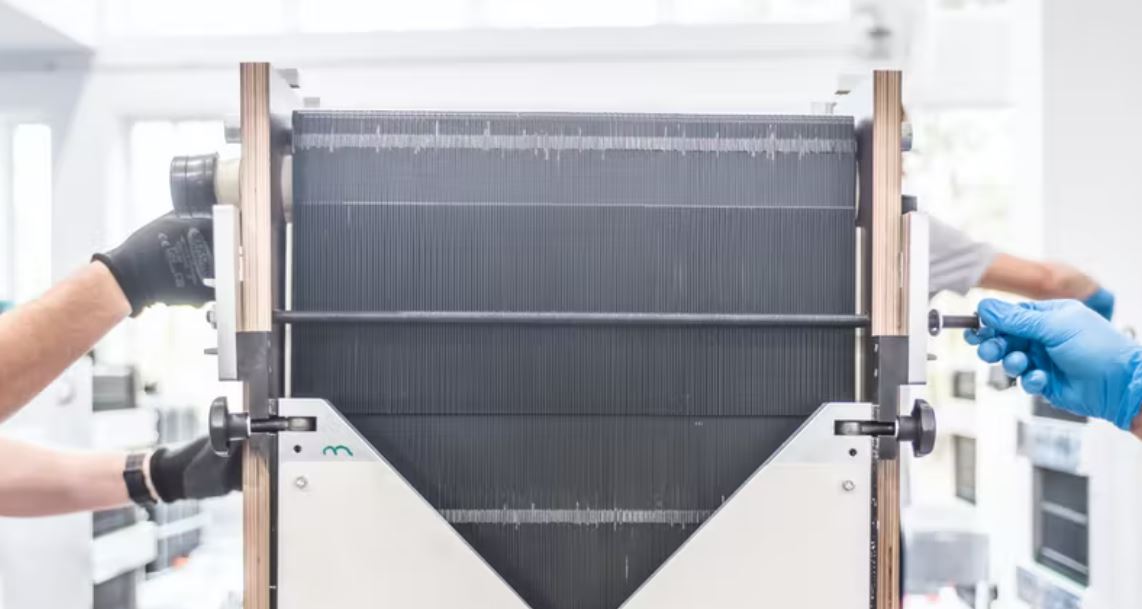An international consortium led by UK maritime tech specialist MSE international is moving forward with its BluesStor project, which involves a large-scale storage facility with redox flow batteries in Portsmouth, England.
The companies said the feasibility study showed the project's ability to procure energy for two visiting cruise ships at times of low demand. Due to the relatively low density of each battery cell, projects with a scale of up to 50 MW/600 MWh could be built with this storage technology.
“The battery consists of 11 strings of battery modules with 13 modules in each string producing a DC voltage of 690 V,” a company spokesperson told pv magazine. “The total energy capacity is 6.1 MWH and it has an output power of 650 kW.”
The battery is expected to be charged using a shore connection a 50 Hz 415 V three-phase supply and to rely on an output transformer allowing it to discharge to vessels at 60 Hz and 440 V.
Popular content
“We compared the levelized cost of energy (LCOE) for this battery against lithium-ion and vanadium redox flow batteries (VRFBs) at four-hour, eight-hour and 16-hour durations. The LCOE for this eight-hour demonstration battery will be equivalent to a lithium battery, but the LCOE for a 16-hour battery will be 25% cheaper,” the spokesperson said, noting that it expects this technology to outperform lithium ion at all durations above four hours by 2030. “The LCOE of this battery will outperform conventional VRFB at all durations.”
UK-based Swanbarton is developing the organic redox flow battery, while German battery manufacturer CMBlu will supply the electro-chemistry for the batteries. The system will be based on high-performance organic energy storage molecules.The material used, lignin, can be sourced as a by-product from pulp mills. It is filled into two separate tanks and combined for a biochemical reaction in a special unit. The material is organic, non-flammable, non-explosive, and can live through more than 10,000 charging cycles. The flow battery system has a multi-cell stack design and is only really suitable for stationary storage applications, but it is easily scalable to the gigawatt level.
This content is protected by copyright and may not be reused. If you want to cooperate with us and would like to reuse some of our content, please contact: editors@pv-magazine.com.



1 comment
By submitting this form you agree to pv magazine using your data for the purposes of publishing your comment.
Your personal data will only be disclosed or otherwise transmitted to third parties for the purposes of spam filtering or if this is necessary for technical maintenance of the website. Any other transfer to third parties will not take place unless this is justified on the basis of applicable data protection regulations or if pv magazine is legally obliged to do so.
You may revoke this consent at any time with effect for the future, in which case your personal data will be deleted immediately. Otherwise, your data will be deleted if pv magazine has processed your request or the purpose of data storage is fulfilled.
Further information on data privacy can be found in our Data Protection Policy.